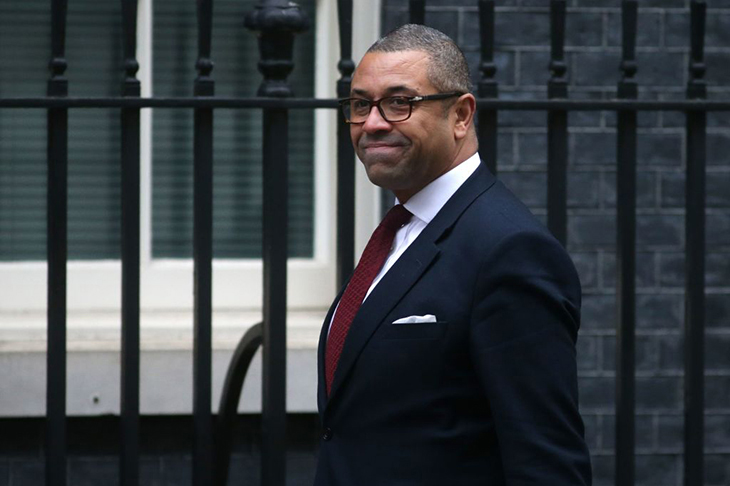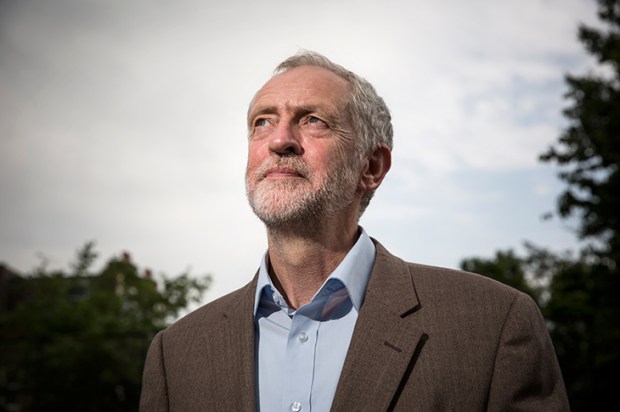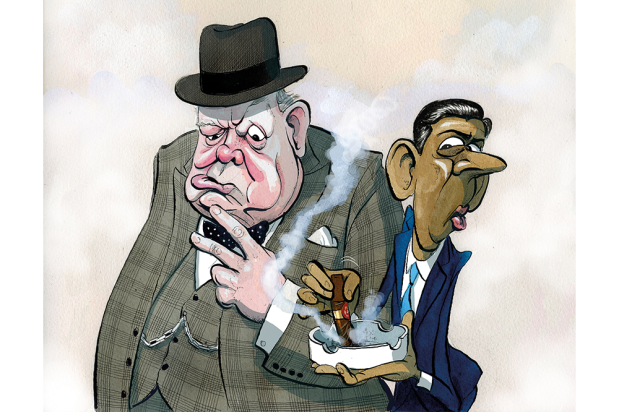As Labour gathers for its conference in Liverpool this weekend, the Conservatives will be watching with trepidation, rather than the schadenfreude with which they initially treated the rise of the hard left. Underestimating the appeal of Jeremy Corbyn was one of the biggest mistakes the Tories have made in the past two years, and the party has had plenty of time to ask why Labour ended up doing so well. James Cleverly, the party’s deputy chairman, believes that he has the answer.
‘A big, big chunk of that was our fault,’ he says when we meet at Conservative Campaign Headquarters. ‘The Prime Minister, as we know from all the time she’s been in parliament, is a grafter. She is focused on detail. She’s not a flamboyant, televisual, box-office kind of person: we knew that. And yet somehow, between the summer of ’16 and the summer of ’17, we convinced ourselves that all the experience we have had of her, over the decades she was in politics, was wrong.’ The mistake, he says, was to make her ‘not just the face, but the exclusive function of the campaign’.
So the Tories are now seeking new faces — starting with Cleverly’s. Part of his CV is classic Tory: a Territorial Army officer, a former London Assembly member who became MP for Braintree three years ago. He’s anything but stuffy. The mixed-race son of a midwife from Sierra Leone and an English surveyor, he’s confident, talkative and ambitious. He’s meant to help the party appeal to younger voters and revels in his cheeky-chappy persona: he used one of his first radio interviews to say he’d like to snog Theresa May. His straight-talking manner means that he’s already said publicly what a lot of his colleagues say privately: he wants to be prime minister one day.
For the time being, he’s focused on changing the party’s image. Especially amongst the young, who are more inclined to vote Labour. Winning them back, he says, should be an easy sell because it should be ‘a debate with millennials about choice and freedom: the on-demand generation, people who live on Netflix and YouTube’. The young, he says, ‘don’t want the state-controlled single-provider life that the leader of the Labour party wants to give them.’ There is a positive case, he says, if the Tories can bring themselves to make it. But the party’s problem is an addiction to negative campaigning: seeking to win elections by saying how awful the other lot are. ‘We just fundamentally forgot that people want to vote for something positive,’ he says. ‘They want to be shown what the good life for them personally looks like.’ It’s a common complaint: that the Tories have lost sight of what they stand for. But when we ask him why he’s a Tory, he harks back to the 1970s and the winter of discontent.
Cleverly’s mother had come to Britain from Sierra Leone in the late 1960s. She came from a grand family and the idea was that she would study nursing, then return home and, in Cleverly phrase’s, ‘marry appropriately’. But then she met Cleverly senior, and got unexpectedly pregnant. ‘So going home stopped being an option.’ By the time he was nine, he can remember things going wrong for the family.
‘I remember mum being quite upset. It was the realisation that she’d cashed in what was a very comfortable life and then suddenly she was in the winter of discontent.’ The power strikes, the three-day week. ‘So this place, that was meant to be the shining centre of the universe, was just rubbish. It was falling apart. She’s thinking, “Wow, what have I done?”’ But then, Margaret Thatcher came along and things started to look up.
Who are May’s people? Who do the Tories look after now? He admits that the Tory ‘demographic has changed’ from 2015, when David Cameron won his majority, saying that Brexit has meant less support from young graduates but more from the working class. The calculation, in last year’s election, was that the Tories would win big by being the Brexit party rather than talking about conservatism. But Brexit can’t dominate the next campaign, says Cleverly: ‘Once we have delivered Brexit, no one is going to say: “Oh wow, you delivered Brexit, I’m going to ignore everything else to do with politics and reward you!”’ Churchill wasn’t thanked in the 1945 election, he says. For voters, ‘it’s always about what’s next’.
So what should be next? He wishes to heal the wounds of the Brexit wars, in both the Tory party and the country. He campaigned to Leave, but says that Brexiteers ‘have to understand why people are scared’ about leaving. ‘We can’t laugh at them and say: you’re snowflake hippie Remainers. We need to understand what they are concerned about.’
With the fight over May’s Chequers plan threatening to overshadow the Tory conference in Birmingham, a Tory Brexit reconciliation seems a long way off. Part of Cleverly’s job is to promote Mrs May’s Chequers plan, but he’s not starry eyed about it. ‘If we had a magic wand right at the start of the process, and could get just the things that we wanted, would it look like the Chequers proposal? Of course it wouldn’t.’ He says that Chequers accepts the realpolitik: that we’re coming towards the end of a bruising negotiation. ‘You can’t just beat up the other side and demand everything. It’s unsustainable. It’s undeliverable.’
So why hasn’t May tried harder to sell her Chequers plan? His answer may alarm many Brexiteers on the Tory benches, for it indicates that more compromises are coming. ‘When we get to the final deal, that’s the document that really needs to be sold. There is no point selling a document when there is still an evolution in the process.’
Cleverly, though, thinks that Chequers is the beginning of Brexit, not the end: ‘You can’t get perfection. You can never get perfection. There have to be constant course corrections and there will be constant course corrections on Brexit-related stuff once we leave the EU.’
This is Michael Gove’s message: that the Chequers plan is a staging post to a better Brexit. The EU, however, doesn’t seem to agree and is suggesting it will find ways to make it impossible to row back. Which may guarantee that Brexit doesn’t work as neatly as Cleverly would like. The wars may well continue.
In recent months, there have been reports that the Tories are falling prey to a Ukip-style infiltration, with Eurosceptic voters flooding the party in the hope of hardening its Brexit stance and electing an appropriate leader. There’s loose talk of purges being carried out by the new breed of members: the Remain-supporting Sarah Wollaston fears that she might be first in the firing line. The Tories certainly need members: at the last count they had just 124,000, fewer than that of the Scottish National Party let alone Labour, which has 530,000 members, more than all the other parties put together.
To catch up, the Tories are offering membership of £25 a year, or £5 for the under-23s. Not a bad deal, given that membership will probably mean the right to vote on the next prime minister. So is Cleverly worried that his bargain-basement membership policy might mean a takeover? Not a bit.
‘The point of a political party is to attract a broad base of members and activists and lots of them. That, by definition, means that we will be attracting people who voted Ukip in the past, maybe have even stood as Ukip candidates in the past.’
The Tories have banned well-known Ukippers, such as Steven Woolfe and Arron Banks, from being members. But might former Ukip candidates be allowed in, if they apply in good faith? ‘Yes. And you can scratch out the word “Ukip” and just put former candidates from whatever party. If they see what we’re doing and think, “That’s a good idea”, then yes. Come aboard. That’s what we want.’
Got something to add? Join the discussion and comment below.
Get 10 issues for just $10
Subscribe to The Spectator Australia today for the next 10 magazine issues, plus full online access, for just $10.
You might disagree with half of it, but you’ll enjoy reading all of it. Try your first month for free, then just $2 a week for the remainder of your first year.














Comments
Don't miss out
Join the conversation with other Spectator Australia readers. Subscribe to leave a comment.
SUBSCRIBEAlready a subscriber? Log in